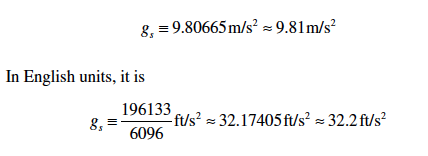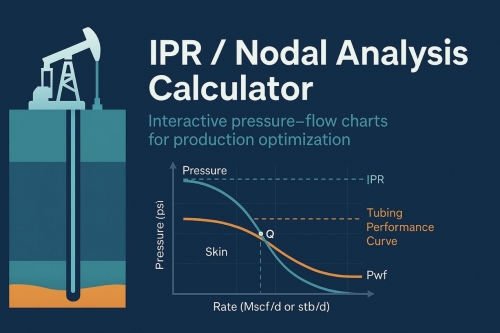In the preceding formula, the specific weight is determined from the specific mass using the local acceleration of gravity, g. The acceleration of gravity is not a constant and varies even on earth. For instance, a string of casing with a mass of 500,000 lb might weigh 498,725 lbf at the equator and 501,275 lbf at one of the poles. We are not going to consider local variations of g in this text, but instead use an average value, called the standard gravity. Such an average value was adopted by the Conference Generale des Poids et Mesures (CGPM) in 1901 and defined as the standard gravity to be used in legal weights and measures. The GCPM defined value is

It is not likely that the local acceleration of gravity will deviate enough from the standard gravitational acceleration to significantly affect our calculations, but it is important to understand these definitions and assumptions.

%20(1).png)



